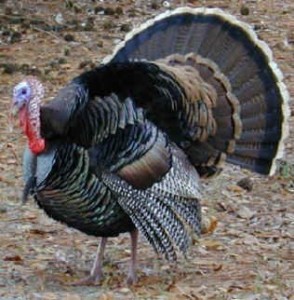When Abraham Lincoln proclaimed Thanksgiving as an annual, national holiday, he had several centuries of thanksgiving legacy in America backing him up. American schoolchildren don’t usually learn that Lincoln was the one who made Thanksgiving official. Instead, they’re taught a story of Pilgrims and Indians in the early 1600s, a legend loaded with mythological elements.
Schoolchildren also don’t hear about Thanksgiving during the American Revolution, but it was there, too. In 1777, the Continental Congress issued the First National Proclamation of Thanksgiving and relied upon governors to determine how this proclamation would be observed within individual states. Independent celebrations of thanksgiving also sprang up throughout the North American colonies and were recorded by historians. For example, George Washington declared a thanksgiving in December 1777 for his victory at Saratoga.
What all these historical Thanksgiving celebrations had in common was a need to acknowledge gratitude for friends, family, and fortune, a striving for something greater than the self in the wish that all humans might have peace. For that reason, Thanksgiving is my favorite holiday. Unfortunately, within my lifetime, I’ve watched it become subsumed in the commercialization of Christmas. Grocery store displays jump from Halloween to Christmas with nary a turkey feather or Pilgrim hat to remind us of this holiday.
We need Thanksgiving. It provides us with time to slow down, to enjoy the company of those we love and express gratitude for life. Don’t be a Thanksgiving miser or someone who must be prodded by the big turkey dinner to give thanks. Don’t rush past it on the way to Christmas. Find a way to celebrate Thanksgiving in your heart from now through Thanksgiving 2014.
And if you need a reminder of how fortunate you are, watch this short video.
Happy Thanksgiving. May yours be safe and restful.
Pssst. Today and tomorrow, pick up Michael Stoddard’s first adventure, Regulated for Murder, in the electronic form for only 99 cents at Amazon.
**********
Did you like what you read? Learn about downloads, discounts, and special offers from Relevant History authors and Suzanne Adair. Subscribe to Suzanne’s free newsletter.



I remember being an elementary student in Massachusetts and they made a big deal of teaching us about Thanksgiving in school. I lived only 60 miles from Plymouth, so it was a big part of teaching about state history. My parents also brought me to visit Plymouth, where they have a recreated Pilgrim/Puritan village, Plimoth(spelled that way)Plantation, where historically dressed employees demonstrate how people lived back then. (We also lived within driving distance of Sturbridge Village, a similar historical village portraying the 1830s).
There’s nothing quite like spending Thanksgiving in New England, close to where it all began.
Would you agree that the idea of Thanksgiving is related to the older pagan harvest festivals. I’ve always seen it that way.
Hope you had a good Thanksgiving. I overate and I really need to go get a nap.
Hi Tracy! Whew, I just now got my kitchen cleaned up. My refrigerator is spring-loaded. I’ve discovered whipped coconut cream; it totally beats whipped cream for a pumpkin pie topper. And my dog is bugging me to go for a walk. Smart dog.
Yes, I imagine that Thanksgiving in New England is far, far different from Thanksgiving in North Carolina, even though it was good and cold today here. Of course, I grew up in south Florida, where I wore shorts for Thanksgiving and Christmas, so this really feels like Thanksgiving to me here.
The Pilgrims weren’t consciously imitating pagan festivals when they had their Thanksgiving, but harvest festivals do have their roots in ancient pagan festivals, so the Pilgrims were still honoring the autumn earth rhythm. The cornucopia (aka “horn of plenty,” you connect the dots there) so often associated with imagery of modern Thanksgiving dates from ancient Greece. These festivals evolve and change, but at their cores, they have the power to put us in touch with humans from long ago.